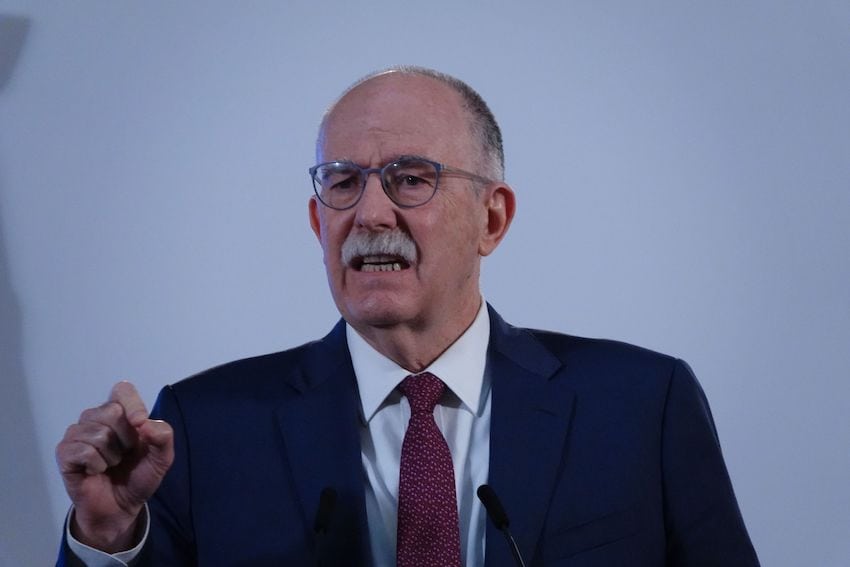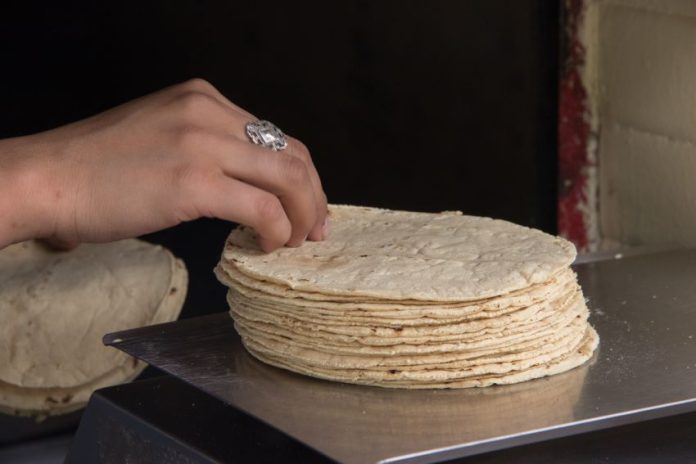Mexico’s Agriculture Minister announced Tuesday that his agency has a plan to reduce the consumer price of corn tortillas by 10%.
“We are going to invite [producers] to come to a national agreement on corn and tortillas, with a very ambitious goal of reducing the cost of tortillas by 10% in real terms throughout the duration of this government’s term in office,” Julio Berdegué, head of the ministry known as SADER, told reporters at President Claudia Sheinbaum’s daily presidential press conference.

The price of tortillas rose by 61.7% during President Andrés Manuel López Obrador’s term (2018–2024), making today’s average price of corn tortillas per kilogram 23.17 pesos (US $1.16).
Berdegué’s stated commitment to reduce the price of one of Mexico’s most popular staple foods — dubbed by officials as the National Plan for Corn and Tortillas — is just one part of a new comprehensive federal plan announced at Tuesday’s press conference to advance Mexico’s self-sufficiency in food crops, support Mexican farmers, guarantee food security for citizens and promote nutritious diets.
Another part of the plan announced Tuesday, the Production for Well-Being program, has as a core tenet the support of 2.02 million small and medium-scale farmers, chiefly in the production of staple crops such as corn, beans, sugar cane, coffee, cocoa and honey.
Another initiative in the plan is the Harvesting Sovereignty program, an initiative to boost the production of corn, beans, rice, milk, sorghum, onions, tomatoes and chiles in Mexico.
Mexicans consume around 1 million metric tons of beans a year, 300,000 of which are imported. Sheinbaum’s government would like to change that by helping farmers cultivate almost 1.9 million acres of land with certified high-quality legume seeds. It also aims to increase rice production in Mexico by 250,000 metric tons a year by supporting the development of 148,263 acres of land.
Sader has identified 1,200 low-income municipalities where small and medium-sized commercial farming is prevalent to participate in the project. To support these priority areas, the ministry will offer a combination of credit facilities, commercial assistance and social programs as incentives.
Berdegué emphasized that while the government’s plan aims to encourage more staple crop production, it also is committed to doing so with a lower environmental impact, acknowledging that 75% of the country’s water is currently used for agriculture.
With reports from El Economista
